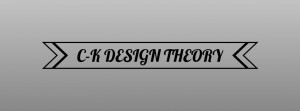Open Source & Open Innovation
The Open Forum Academy has just released “Thoughts on Open Innovation” a free book including ten articles touching various aspects of Open Innovation and Open source.
In this post I would like to share my understanding and own thoughts regarding the article from Andrew Updegrove “”Openness” and the pursuit of knowledge”.
In this brilliant paper the author demonstrates the profund and permanent changes the internet has imposed on the way knowledge is created and shared.
He explains that, with the invention of writing, men have allowed the accumulation of knowledge and established a linear process for innovation. This process starts with an invention, its’ recording in writing, transmission, reproduction, adoption and eventually its’ translation into innovative products.
Additionally, as communication used to be limited, the reproduction and dissemination of innovation were limited too and sometimes even inventions were lost.
With this schema and the advent of the industrial era, strong rights were naturally attributed to the inventor as it maximized the value of inventions.
Our modern communication means, however, and primarilly the internet, have broken all barriers. People can not only instantly share ideas but also collaborate regardless of distance. Therefore, the linear innovation process was turned into a real-time process. As the innovation cycles were fundamentatly changed, the legal framework needed to evolve as well.
New legal forms were developped “in the trenches” including tailored licences that allowed the advent of the Open initiatives. The most famous one being Open Source, initiated by the Free Software Foundation. The Free Software principles are the freedom to: run, study, re-distribute and improve software. It gave birth to some of the most used software licences today as the Apache, GNU, BSD, etc…
Based on similar principles other open initiatives have succesfully been roled out as:
- Open hardware: altough adoption is still limited it includes notable cases as the Sparc processor architecture. But also major HW patents being freely shared as, and not the least, the electric car patents from Tesla as announced on June 12 2104.
- Open platforms: include several attempts to build open linux operating systems for mobile phones and notably Androïd by Google.
- Open Standards: as communication requires interoperability, open standards set a rule of fair patent licencing so that all stakeholders can implement the technology even when it relies on patented processes. There is still much debate of the definition of Open Standards and the level of “faireness”…
- Open Content: with pictures and graphics sharing on internet has led to the Creative Commons licence.
- Open Data: enables the broad availability of non-text data mostly from goverments and institutions and a new ecosystem of value-added applications (e.g. in energy, transportation etc..).
- Open Access: the Budapest Open Access Initiative called for universal access to research results and obtained great results with, today, a majority of research being available from self-archived repositories as arxiv.org and many others.
The author concludes with the benefits one can expect from a modified IPR law that would (will?) build on the basis of the open source principles: faster development of project, faster discoveries, new opportunities, reduced prices and greater profit… Only that !
Two other aspects of the “Open source revolution” are worth mentionning according to me:
- the huge quantity of information and knowledge available today that requires advanced tools to browse efficiently and identify the one piece that will answer your needs. This is what ideXlab has developped with its’ knowledge search engine.
- the fluidity of knowledge exchanges and the new collaborative nature of innovation that pledges for more systematic and structured use of Open Innovation.
Andrew Updegrove is an entrepreneurs’ counsel working at http://www.gesmer.com/
You can download a full copy of the open innovation book at http://www.openforumacademy.org/research/library/ofa-research/Thoughts_on_Open_Innovation.pdf
Thank you Open Forum Academy !









[…] The Internet has fundamentaly changed the way innovation is conducted and required changes in the legal framework as well, the Open Source did it. […]